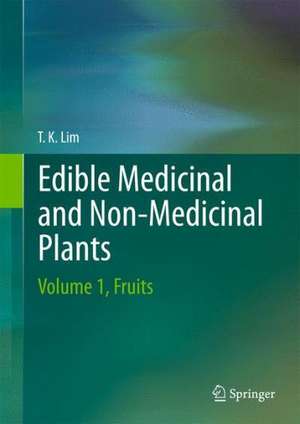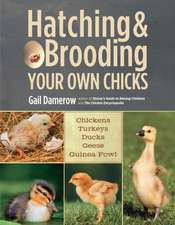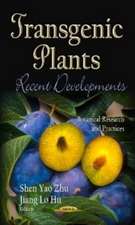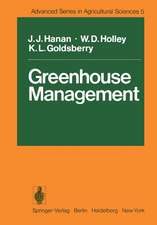Edible Medicinal and Non-Medicinal Plants: Volume 1, Fruits
Autor Lim T. K.en Limba Engleză Hardback – 3 ian 2012
| Toate formatele și edițiile | Preț | Express |
|---|---|---|
| Paperback (2) | 1600.70 lei 38-44 zile | |
| SPRINGER NETHERLANDS – 23 aug 2016 | 1600.70 lei 38-44 zile | |
| SPRINGER NETHERLANDS – 23 aug 2016 | 2030.43 lei 38-44 zile | |
| Hardback (2) | 1859.67 lei 6-8 săpt. | |
| SPRINGER NETHERLANDS – 3 ian 2012 | 1859.67 lei 6-8 săpt. | |
| SPRINGER NETHERLANDS – feb 2012 | 2528.94 lei 6-8 săpt. |
Preț: 1859.67 lei
Preț vechi: 2267.88 lei
-18% Nou
Puncte Express: 2790
Preț estimativ în valută:
355.94€ • 366.81$ • 300.50£
355.94€ • 366.81$ • 300.50£
Carte tipărită la comandă
Livrare economică 04-18 martie
Preluare comenzi: 021 569.72.76
Specificații
ISBN-13: 9789048186600
ISBN-10: 9048186609
Pagini: 852
Ilustrații: XV, 835 p.
Dimensiuni: 178 x 254 x 51 mm
Greutate: 1.68 kg
Ediția:2012
Editura: SPRINGER NETHERLANDS
Colecția Springer
Locul publicării:Dordrecht, Netherlands
ISBN-10: 9048186609
Pagini: 852
Ilustrații: XV, 835 p.
Dimensiuni: 178 x 254 x 51 mm
Greutate: 1.68 kg
Ediția:2012
Editura: SPRINGER NETHERLANDS
Colecția Springer
Locul publicării:Dordrecht, Netherlands
Public țintă
ResearchCuprins
Introduction.- Actinidiaceae.- Adoxaceae.- Anacardiaceae.- Annonaceae.- Apocynaceae.- Araceae.- Averrhoaceae.- Betulaceae.- Bignoniaceae.- Bixaceae.- Bombacaceae.- Bromeliaceae.- Burseraceae.- Cactaceae.- Caricaceae.- Cuppressaceae.- Cycadaceae.- Medical Glossary.- Scientific Glossary.- Common Name Index.- Scientific Name Index.
Recenzii
From the reviews:
“This remarkable book devotes over 800 pages to plant families whose names begin with the first three letters of the Latin alphabet starting with Actinidaceae (kiwi fruit) and ending with Cycadaceae (cycads). … The author summarizes antioxidant, anticancer, and antimicrobial activities of the plants, along with reports of antivenin, radioprotective, and antiaging properties, some of which are cited in preliminary studies only. Summing Up: Recommended. Upper-division undergraduates and above; informed general readers.” (S. Hammer, Choice, Vol. 49 (11), July, 2012)
“This remarkable book devotes over 800 pages to plant families whose names begin with the first three letters of the Latin alphabet starting with Actinidaceae (kiwi fruit) and ending with Cycadaceae (cycads). … The author summarizes antioxidant, anticancer, and antimicrobial activities of the plants, along with reports of antivenin, radioprotective, and antiaging properties, some of which are cited in preliminary studies only. Summing Up: Recommended. Upper-division undergraduates and above; informed general readers.” (S. Hammer, Choice, Vol. 49 (11), July, 2012)
Textul de pe ultima copertă
Edible Medicinal and Non-medicinal Plants is a comprehensive and scientifically up-to-date work covering more than a thousand species of plants in a multi-compendium format. The aim is to create awareness and interest in the rich and diverse array of such plants.
The edible species dealt with in this work include to a larger extent lesser-known, wild and underutilized crops and also common and widely grown crops that are consumed as fruits, vegetables, culinary herbs, pulses, cereals, spices and condiments, root crops, beverages, mushrooms, edible oils and stimulants.
All relevant available and up-to-date information collated are provided in a comprehensive referenced format accompanied by copious coloured images to assist in the identification of the edible plant and plant parts.
Topics covered include: taxonomy (botanical name and synonyms); common English and vernacular names; origin and distribution; agro-ecological requirements; edible plant part and uses; plant botany; nutritive and medicinal/pharmacological properties, traditional medicinal uses and up-to-date research findings; other non-edible uses; and selected/cited references for further reading.
Each volume covers about a hundred edible species arranged according to botanical families, and species in alphabetical order. Each volume has a separate index for scientific and common names and separate scientific and medical glossaries Thefirst few volumes focus on edible fruit crops used as food followed by those used as vegetables.
Volume 1 covers edible fruits in the families: Actinidiaceae, Adoxaceae, Anacardiaceae, Annonaceae, Apocynaceae, Araceae, Arecaceae, Averrhoaceae, Betulaceae, Bignoniaceae, Bixaceae, Bombacaceae, Bromeliaceae, Burseraceae, Cactaceae, Caprifoliaceae, Caricaceae, Cuppressaceae and Cycadaceae.
The edible species dealt with in this work include to a larger extent lesser-known, wild and underutilized crops and also common and widely grown crops that are consumed as fruits, vegetables, culinary herbs, pulses, cereals, spices and condiments, root crops, beverages, mushrooms, edible oils and stimulants.
All relevant available and up-to-date information collated are provided in a comprehensive referenced format accompanied by copious coloured images to assist in the identification of the edible plant and plant parts.
Topics covered include: taxonomy (botanical name and synonyms); common English and vernacular names; origin and distribution; agro-ecological requirements; edible plant part and uses; plant botany; nutritive and medicinal/pharmacological properties, traditional medicinal uses and up-to-date research findings; other non-edible uses; and selected/cited references for further reading.
Each volume covers about a hundred edible species arranged according to botanical families, and species in alphabetical order. Each volume has a separate index for scientific and common names and separate scientific and medical glossaries Thefirst few volumes focus on edible fruit crops used as food followed by those used as vegetables.
Volume 1 covers edible fruits in the families: Actinidiaceae, Adoxaceae, Anacardiaceae, Annonaceae, Apocynaceae, Araceae, Arecaceae, Averrhoaceae, Betulaceae, Bignoniaceae, Bixaceae, Bombacaceae, Bromeliaceae, Burseraceae, Cactaceae, Caprifoliaceae, Caricaceae, Cuppressaceae and Cycadaceae.
Caracteristici
Multi compendium format covering over 1000 edible medicinal and non-medicinal plants: fruits, vegetables, culinary herbs, pulses, cereals, spices and condiments, root crops, beverages, mushrooms, edible oils and stimulants Each volume covering 100 species with 300-350 coloured plates/volume to help identify the plant and plant parts which are edible and so used For each plant, detailed and up-to date information is provided: on its botanical name and synonyms; common English and vernacular names; origin and distribution; agroecological requirements; edible plant parts and uses; plant botany; nutritive and medicinal/pharmacological values, medicinal uses and relevant up-to-date research; other uses; and cited and selected references for further reading. Each volume will have a separate index for scientific and common names and separate scientific and medical glossaries.












